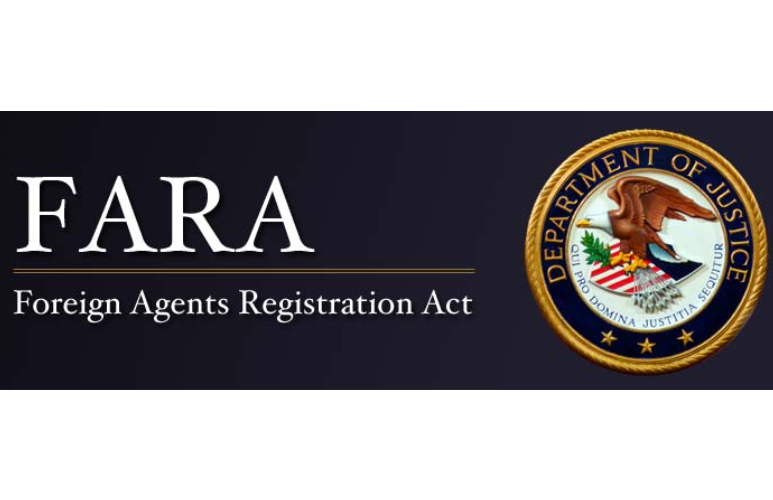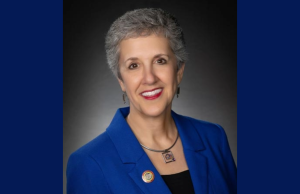The number of nonprofits receiving money from foreign governments having to register under the Foreign Agents Registration Act (FARA) might be expanded, according to a recent advisory opinion from the U.S. Department of Justice (DOJ).
The advisory opinion, which was dated March 13, 2020 but not made public until late June, claimed an unnamed nonprofit was seeking to “change corporations’ product-sourcing practices pertaining to the use of natural resources found outside the United States in tropical regions of the world.”
The advisory opinion further claimed representatives of the nonprofit “met occasionally with officials of the U.S. government” and “formed agreements with ‘cooperating partner’ firms.”
The unidentified nonprofit, according to the advisory, “is funding its activities and the activities of third parties with grant money received directly from [foreign government agency].”
While the advisory opinion does not identify a nonprofit or a foreign government agency, on June 16, the DOJ’s FARA unit in the National Security Division received a registration statement from the National Wildlife Federation (NWF). The statement identified the Norwegian Agency for Development Cooperation (NORAD) as a foreign principal. Sources have speculated the DOJ’s redacted advisory opinion was referring to the NWF and NORAD.
Within that registration statement, the National Wildlife Federation acknowledged receiving funding from NORAD, but maintained it “values its independence and would not accept funding from any source that comes with limitations on the ability of NWF to advocate for the values and polices it believes in. Likewise, the grant agreement does not give NORAD any ability to direct or control NWF.”
According to the advisory opinion, an entity is also required to register with the FARA unit if “it acts ‘in any…capacity at the order, request, or under the direction or control, of a directed, controlled, financed, or subsidized in whole or in major part by a foreign principal.’”
Despite the FARA statute being around for 82 years, there is no standard for “subsidized in whole or in major part.” Matthew T. Sanderson, a co-leader of the Political Law Group and a member in the Exempt Organizations Group at Washington, D.C.-based law firm Caplin and Drysdale, speculated that language might indicate just more than 50 percent of an organization’s funding.
According to papers filed with the DOJ, the NWF received the equivalent of roughly $1.15 million from NORAD. Its total revenue in fiscal year 2018 was about $94.4 million, according to its most recent federal Form 990.
But financing is not the only standard required for registration, and the DOJ is cracking down on all entities. “DOJ’s recent emphasis on enforcement has sent shockwaves through lobbying, public relations, and other organizations,” Sanderson said. “Some have viewed tax-exempt entities as having a soft exemption from FARA. This opinion clarifies that if a U.S. nonprofit is accepting funds from a foreign source, particularly a foreign government, it has to closely scrutinize whether it has a registration obligation.”
He added: “It is possible an organization can avail itself of an exemption, but the DOJ will read those narrowly and the obligation to register very broadly.”
Sanderson indicated the prudent action for any tax-exempt organization would be to examine whether its foreign grantors have connections with a foreign government, such as someone on its board, or whether it receives foreign government grants, or is subject to any form of direction or control by a foreign government.
Sanderson also suggested organization managers consider FARA during the grant-writing process, so the grant is structured to fall outside FARA’s scope. Managers should also consider indicating potential need for a FARA registration in their proposals and other negotiations.
“The department is on more of a war footing than it has been previously,” Sanderson said. “Who knows whether tax-exempt organizations will be part of that, or a footnote?”










